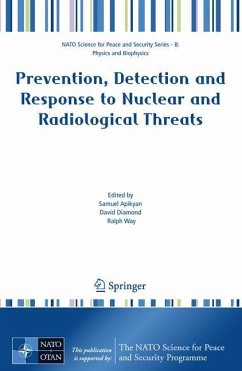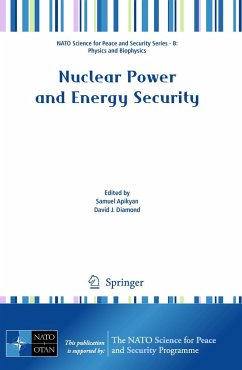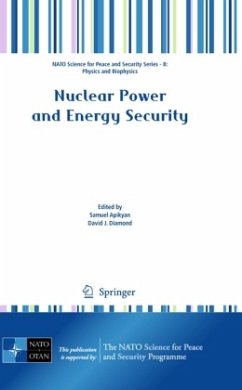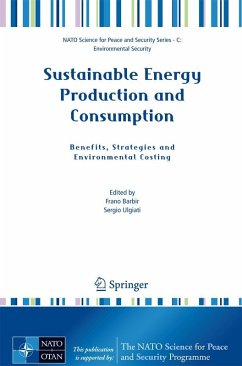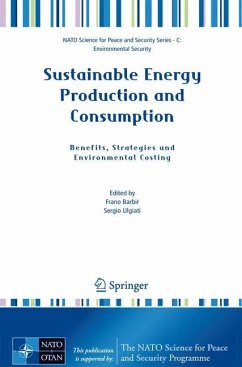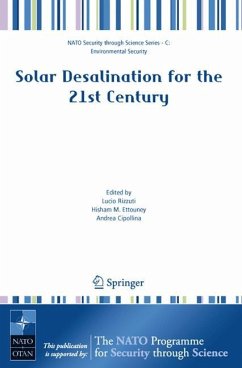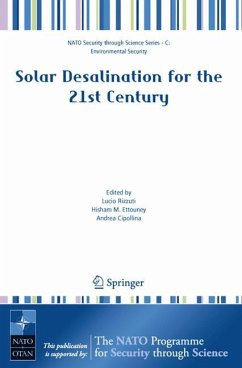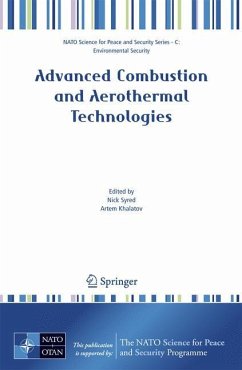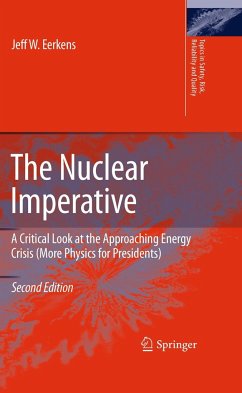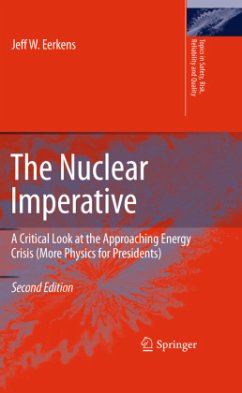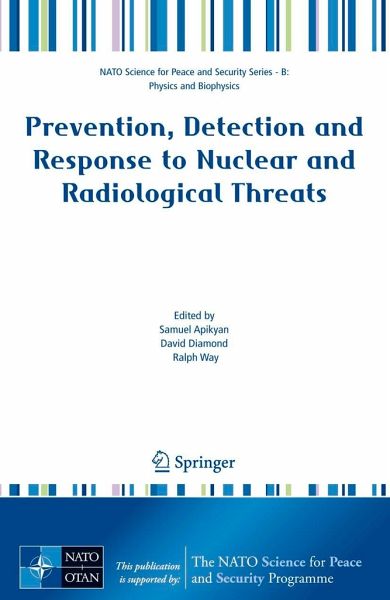
Prevention, Detection and Response to Nuclear and Radiological Threats
Versandkostenfrei!
Versandfertig in 6-10 Tagen
151,99 €
inkl. MwSt.
Weitere Ausgaben:

PAYBACK Punkte
76 °P sammeln!
Since the end of the Cold War, the nuclear threats facing the world are dramatically evolving and have become even much more complex. However, the events of the past years have proved the necessity to reevaluate these threats on a level never before considered. The need to prevent, detect and respond to Nuclear/Radiological threats leads to many requirements that are not met by current scientific technologies and scientific communities.For this concern now we are aware and recognize, the first, that no single institution (no single country) possesses all the required assets to address these co...
Since the end of the Cold War, the nuclear threats facing the world are dramatically evolving and have become even much more complex. However, the events of the past years have proved the necessity to reevaluate these threats on a level never before considered. The need to prevent, detect and respond to Nuclear/Radiological threats leads to many requirements that are not met by current scientific technologies and scientific communities.
For this concern now we are aware and recognize, the first, that no single institution (no single country) possesses all the required assets to address these complex problems. It will require the formation of international science and technology teams that combine multiple scientific disciplines and span from basic research to systems engineering and manufacturing; the second, that fundamental scientific challenges must be overcome to achieve new and improved technologies that effectively counter radiological and nuclear threats.
The primary goal of any counter-terrorism effort is to prevent an attack as early in the development stages as possible. Many current approaches employed to prevent a nuclear/radiological attack rely upon detection of materials. Another general category of threat reduction involves preventing acquisition or utilization of the materials. Therefore while the organizers and participants of this meeting recognize that the Nuclear/Radiological threats is extremely broad, we necessarily limited the scope of this NATO Advanced Research Workshop and the programme focused on science and technology challenges associated with our need to prevent, detect and respond to Nuclear/Radiological threats.
The book can serve as a tool for communicating the outcomes of the workshop not only to the multi-national scientific and technical communities engaged in combating nuclear/ radiological terrorism, but also to those working at governmental and policy levels whose actions affect the directions thescience takes and how the technology is incorporated into country-specific national systems for combating nuclear/radiological terrorism.
For this concern now we are aware and recognize, the first, that no single institution (no single country) possesses all the required assets to address these complex problems. It will require the formation of international science and technology teams that combine multiple scientific disciplines and span from basic research to systems engineering and manufacturing; the second, that fundamental scientific challenges must be overcome to achieve new and improved technologies that effectively counter radiological and nuclear threats.
The primary goal of any counter-terrorism effort is to prevent an attack as early in the development stages as possible. Many current approaches employed to prevent a nuclear/radiological attack rely upon detection of materials. Another general category of threat reduction involves preventing acquisition or utilization of the materials. Therefore while the organizers and participants of this meeting recognize that the Nuclear/Radiological threats is extremely broad, we necessarily limited the scope of this NATO Advanced Research Workshop and the programme focused on science and technology challenges associated with our need to prevent, detect and respond to Nuclear/Radiological threats.
The book can serve as a tool for communicating the outcomes of the workshop not only to the multi-national scientific and technical communities engaged in combating nuclear/ radiological terrorism, but also to those working at governmental and policy levels whose actions affect the directions thescience takes and how the technology is incorporated into country-specific national systems for combating nuclear/radiological terrorism.



